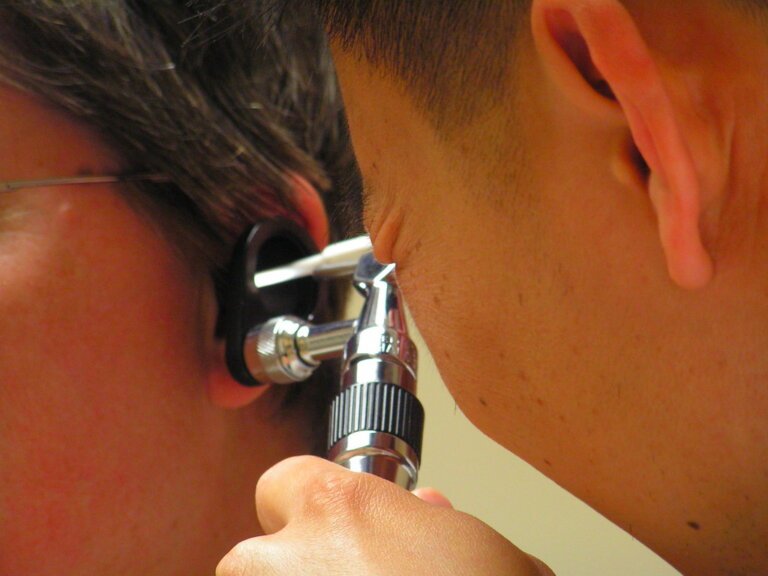The Path to Recognition: Unpacking National Certifications in Microsuction
Last Updated on 25th April 2024 by Admin
In the field of ear care and audiology, microsuction has gained significant recognition and popularity as a safe and effective method for removing earwax and debris. As this technique continues to evolve and advance, the need for standardized certifications becomes increasingly important. National certifications in microsuction serve as a testament to the expertise and proficiency of practitioners, ensuring quality care and patient safety. In this article, we will explore the significance of these certifications and the path to achieving them.
Why are National Certifications in Microsuction Important?
- Ensuring Competency: National certifications in microsuction provide reassurance to patients that the practitioner has acquired the necessary skills, knowledge, and training required to perform the procedure safely and effectively.
- Patients can have peace of mind knowing that the practitioner has undergone rigorous training and has demonstrated competence in microsuction techniques.
- This certification ensures that practitioners are up to date with the latest advancements in the field, ensuring the delivery of high-quality care.
- Standardized Practices: These certifications establish a set of standardized practices and protocols that practitioners must adhere to, ensuring consistency in the delivery of care across different healthcare settings.
- Standardization ensures that patients receive the same level of care regardless of where they seek treatment.
- It promotes uniformity in techniques, reducing the risk of errors and complications.
- Patient Safety: By obtaining national certifications, practitioners demonstrate their commitment to patient safety, as these certifications often require the completion of rigorous training programs and adherence to strict guidelines.
- Patients can trust that certified practitioners have the knowledge and skills to perform microsuction safely, minimizing the risk of complications.
- These certifications emphasize infection control protocols, ensuring a sterile and safe environment for patients.
- Professional Recognition: National certifications in microsuction enhance the professional reputation of practitioners, distinguishing them as experts in their field and boosting their credibility among peers and patients.
- Certified practitioners are recognized as leaders in the field, earning the respect and trust of their colleagues and patients.
- This recognition can lead to increased career opportunities and professional growth.
The Path to Obtaining National Certifications in Microsuction
- Education and Training: The first step towards achieving national certifications in microsuction is acquiring the necessary education and training. This typically involves completing a specialized course or program that covers the theoretical and practical aspects of microsuction.
-
Look for reputable institutions or organizations that offer comprehensive training programs specifically designed for microsuction practitioners.
-
Ensure that the program covers topics such as anatomy and physiology of the ear, infection control, patient assessment, and the proper use of microsuction equipment.
-
Acquiring a strong foundation of knowledge is essential for practitioners to understand the intricacies of the ear and to perform microsuction safely and effectively.
- Clinical Experience: Alongside formal education, gaining hands-on clinical experience is crucial for developing the necessary skills and confidence in performing microsuction. This can be achieved through supervised practice sessions or apprenticeships under the guidance of experienced professionals.
-
Seek opportunities to work in clinics or healthcare facilities that specialize in ear care or audiology.
-
Utilize the guidance and mentorship of experienced practitioners to refine your technique and overcome challenges.
-
Clinical experience allows practitioners to apply theoretical knowledge in real-world scenarios, further honing their skills and judgment.
- Certification Examinations: Once you have obtained the necessary education and clinical experience, the next step is to sit for the certification examination. These examinations assess your knowledge, skills, and ability to apply microsuction techniques in various clinical scenarios.
-
Research and identify the nationally recognized certification bodies or organizations that offer examinations for microsuction practitioners.
-
Familiarize yourself with the eligibility requirements and examination format to adequately prepare for the assessment.
-
Certification examinations ensure that practitioners have mastered the necessary competencies and can provide safe and effective care to their patients.
- Continuing Education and Professional Development: National certifications in microsuction often require practitioners to engage in ongoing professional development to maintain their credentials. This ensures that practitioners stay updated with the latest advancements and best practices in the field.
-
Attend conferences, seminars, and workshops that focus on ear care, audiology, and microsuction techniques.
-
Keep abreast of research articles and publications that contribute to the body of knowledge in this field.
-
Continuing education allows practitioners to stay current with emerging trends and advances in microsuction, ensuring the delivery of the highest quality care.
Benefits of National Certifications in Microsuction for Practitioners
- Enhanced Professional Opportunities: Holding national certifications in microsuction opens up a wider range of professional opportunities, including employment in hospitals, clinics, audiology practices, and research institutions.
- Certified practitioners are highly sought after in the industry, increasing their chances of securing desirable job positions.
- These certifications can lead to career advancement and increased earning potential.
- Credibility and Trust: These certifications provide a badge of credibility and trust for practitioners, allowing them to attract and retain patients who value high-quality and specialized care.
- Patients are more likely to choose certified practitioners, as they perceive them as trustworthy and competent.
- Certification serves as proof of a practitioner’s commitment to maintaining the highest standards of care.
- Networking and Collaboration: Joining professional organizations or associations related to microsuction can provide opportunities for networking and collaboration with other experts in the field. This fosters knowledge exchange, continuous learning, and professional growth.
- Networking allows practitioners to connect with peers, share experiences, and learn from one another.
- Collaboration with other experts can lead to research opportunities and the development of innovative techniques.
- Personal Satisfaction: Achieving national certifications in microsuction instills a sense of personal satisfaction and accomplishment. It reflects the dedication and hard work invested in acquiring the necessary skills and knowledge to excel in this specialized field.
- Certification validates the practitioner’s expertise and serves as a tangible achievement.
- The sense of personal satisfaction motivates practitioners to continually strive for excellence and contribute to the advancement of the field.
In conclusion, national certifications in microsuction are instrumental in maintaining high standards of care, ensuring patient safety, and fostering professional growth for practitioners. By following the path outlined above, aspiring microsuction professionals can carve their way towards recognition and success in this evolving field.
- Why are National Certifications in Microsuction Important?
- National certifications in microsuction are important because they ensure the competency of practitioners, providing reassurance to patients that the procedure will be performed safely and effectively.
- These certifications establish standardized practices and protocols, ensuring consistency in the delivery of care across different healthcare settings.
- They prioritize patient safety by requiring practitioners to undergo rigorous training and adhere to strict guidelines.
- National certifications enhance the professional reputation of practitioners, distinguishing them as experts in their field and boosting their credibility among peers and patients.
- What is the path to obtaining national certifications in microsuction?
- The path to obtaining national certifications in microsuction involves acquiring the necessary education and training, including specialized courses or programs that cover the theoretical and practical aspects of microsuction.
- Gaining hands-on clinical experience through supervised practice sessions or apprenticeships is crucial for developing the necessary skills and confidence.
- After education and clinical experience, practitioners must sit for certification examinations that assess their knowledge, skills, and ability to apply microsuction techniques.
- Ongoing professional development through attending conferences, seminars, and workshops is necessary to maintain credentials and stay updated with the latest advancements in the field.
- What are the benefits of national certifications in microsuction for practitioners?
- Holding national certifications in microsuction opens up a wider range of professional opportunities, including employment in hospitals, clinics, audiology practices, and research institutions.
- These certifications provide credibility and trust, allowing practitioners to attract and retain patients who value high-quality and specialized care.
- Joining professional organizations or associations related to microsuction provides opportunities for networking and collaboration with other experts in the field.
- Achieving national certifications in microsuction instills a sense of personal satisfaction and accomplishment, validating the practitioner’s expertise and motivating them to strive for excellence.
- How do national certifications in microsuction benefit patients?
- National certifications in microsuction benefit patients by ensuring that practitioners have acquired the necessary skills, knowledge, and training to perform the procedure safely and effectively.
- Standardized practices and protocols established by these certifications ensure consistency in the delivery of care, regardless of where patients seek treatment.
- Patient safety is prioritized as certified practitioners have demonstrated their commitment to following strict guidelines and infection control protocols.
- Patients can trust certified practitioners to provide high-quality care and minimize the risk of complications.







